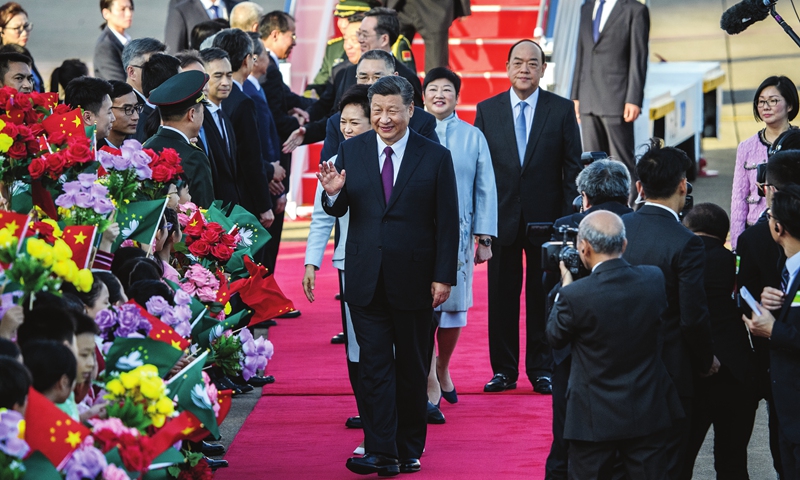 |
| Chinese President Xi Jinping (front C) and his wife Peng Liyuan (behind
Xi) walk on the red carpet in front of outgoing Macao Chief Executive
Fernando Chui (C) and incoming chief executive Ho Iat Seng (blue tie)
after Xi and his wife's arrival at the Macau International Airport in
Macao on Wednesday, ahead of celebrations for the 20th anniversary of
the handover from Portugal to China. Photo: AFP : Chinese President Xi Jinping calls on Macao to modernize governance, build smart city https://youtu.be/RH64lxPYKM4
The inauguration of the fifth-term government will be
held Friday morning followed by Xi's meeting with newly inaugurated
judicial and administrative officials. |
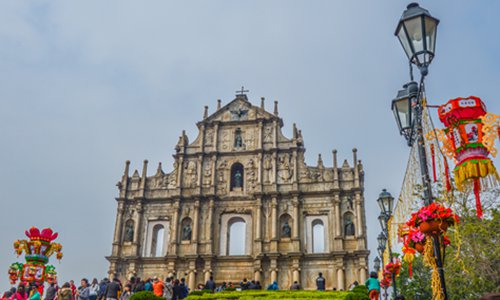 | |
| Macao's landmark Ruins of St. Paul. Photo: VCG |
China's ambassador to UK says Macao can show Hong Kong way forward
The success of Macao's "One Country, Two Systems" will "light up the
path forward for Hong Kong," said Liu Xiaoming, China's top envoy to the
UK, during a banquet at the Chinese embassy in London to celebrate the
20th anniversary of Macao's return to China. #HK
https://youtu.be/1RET1xuvHzA
Macao in Transition: Witness to History / Macao in Transition: Rising Stars
https://youtu.be/0Us2YHIMtoA
Hong Kong and Macao, China's two Special Administrative Regions (SARs) practicing the "one country, two systems" principle, share more differences than similarities, while Hong Kong's social turbulence offers Macao a lesson, observers and analysts said.
From the former Portuguese colony to the world's gaming hub, Macao is poised to become the richest place, overtaking Qatar with the highest per capita gross domestic product on a purchasing power parity basis by 2020. The small city, with a land area of 32.9 square kilometers, has seen its economic growth skyrocket by over 700 percent over the past two decades and become a city with high social welfare.
While Macao is embracing the 20th anniversary celebration of its return to China, it has been praised again for setting a good example of implementing the "one country, two systems" principle, especially as Hong Kong, which returned to the motherland two years before Macao, has been engulfed in months of anti-government protests.
During President Xi Jinping's visit to Macao from Wednesday to Friday to attend events marking the 20th anniversary of Macao's return, he is expected to announce a series of favorable policies aimed at diversifying the city's gaming-dependent economy into a financial center, according to media reports. And such a move is considered as a reward to Hong Kong's neighboring city for avoiding anti-government protests, according to observers, and some suggested that promoting Macao as a new financial center could be an alternative to Hong Kong.
However, former officials and experts claimed that though the two SARs shared common ground such as a high-degree of autonomy, judicial independence and freedom of the press, they have differences in the way they handle relations with the central government and interpret the "one country, two systems" principle. Instead of simply labeling Macao a "good student" or "golden child" as the city is immune to anti-government protests spiraling next door, it should take a look at the fundamental reasons why the two cities are different from historical, cultural and social perspectives, local observers suggested.
Two SARs' differences
As Hong Kong protesters identify themselves as Hongkongers instead of Chinese, Macao people believe that rejecting their Chinese nationality unacceptable, Wu Zhiliang, president of the Macau Foundation, told the Global Times on Tuesday.
"Macao people have a deep understanding of the word 'return'," Wu said, noting that it is not about changing the national flag, or shifting from the governor of Macao to chief executive of Macao SAR government, it is about integrating into the country's whole governance and strategic development plans.
Opposition groups in Hong Kong consider any move of the central government as intervention that erodes its high degree of autonomy, as the central government could not take any gesture, which is a misunderstanding of the "one country, two systems" principle, and is not accepted by people in Macao.
"When Macao comes up with new policies, it always takes the country's development plans into consideration," Wu said.
For instance, when the central government launched an anti-corruption campaign years ago, Macao imposed restrictions on cross-border financing involving Chinese funds, although it had heavily weighed on its pillar gaming industry, local representatives said. "Compared to Hong Kong, there is no such mentality of worshiping Western political systems and social values here in Macao, though it has always been under the mixed influence of Eastern and Western cultures, and people treat those two equally," Wu said.
Unlike Hong Kong, which has been heavily influenced by the West, Macao has a stronger attachment to Chinese culture and values due to its "historical genes."
In the colonial period of Macao, Portuguese control had seen its influence over local communities declining, drawing a contrast with the relatively sophisticated way British authorities took in ruling Hong Kong before handing it over to China.
"There has been no strong cultural penetration of the West in Macao society, which had not been affected by Western social value either," Susana Chou, former president of the Legislative Assembly of Macao, told the Global Times on Tuesday. "For example, when the Hotel of Lisboa was inaugurated years ago, many people in Macao did not know where 'Lisboa' is. Could you image Hong Kong people not knowing where London is? " she asked.
While Hong Kong opposition lawmakers turned debates for rolling out policies into political battles, lawmakers in Macao are not against the Constitution, nor the Basic Law and the Communist Party of China, the former president said, noting that they would come up with different ideas to help roll out better policies.
"It's also inaccurate to say the Legislative Assembly of Macao is the SAR government's affiliate, as we also criticize our government officials a lot. And the assembly often rejects the proposals made by the government," Chou said, noting that the opposition is based on concrete arguments rather than disapproving everything because of its political stance.
Lesson to learn
Considering Macao's historical ties with the mainland, there has been no room for separatism, Wu noted. "But what has happened in Hong Kong would lead us to reflect on deep-rooted questions in Macao, particularly issues concerning Macao youth," he said.
Behind Hong Kong's chaos lie deep-seated social problems, as the majority of arrested radical protesters who trashed the rule of law were youngsters. Although Macao is not facing the same issue, the problems with Hong Kong youth could be seen as a warning sign for the city, observers said.
"We lack a fairer and transparent mechanism for Macao young people to climb toward upper society, and also the numbers of skilled positions are limited," Wu said, noting that the local talent policy is still protective.
"If Macao further opens up its market, could local youth become as competitive as talent from outside? And will talent inflow accelerate social conflicts and anxiety of local youth?" he asked.
While Hong Kong and Macao both share freedom of speech and an open internet, information has been circulating freely on social media and many Macao young people have been well informed about Hong Kong's social unrest for months. When the students were asked about questions on Hong Kong police brutality, many rationally discuss the matter with teachers instead of arguing with their peers and making one-sided judgments, Wu noted.
"Young people could easily influence each other, which is inevitable. It's up to how teachers and parents guide them," he said.
Macao has gained a higher degree of autonomy thanks to the confidence and trust of the central government, which, observers said, creates a positive cycle.
On the contrary, if Hong Kong's opposition groups continue to touch the redline of the central government, it might lead to reevaluation of political risks in Hong Kong by the central government and the expected political reforms could hardly make any progress in the city, observers said.
The virtuous cycle established between the central government and Macao as well as between Macao and the mainland could to some extent serve as a reference for Hong Kong, they noted.
Source link
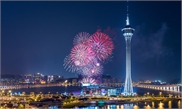 RELATED ARTICLES:
RELATED ARTICLES:West shows ill will to ignore Macao's boom
Before the return, Macao's GDP per capita was much lower than that of Hong Kong, but it is now nearly double that of Hong Kong. This refutes all kinds of arguments. Time will tell.
Say no to Western media's double standards
The declaration of the fifth summit of the Conference on Interaction and Confidence-Building Measures in Asia (CICA), entitled "Shared Vision for a Secure and More Prosperous CICA Region," explored the possibility of establishing appropriate events for sectors including the media community to expand the scope of people-to-people contact, and the CICA Non-Governmental Forum is just such an event where media outlets from different CICA state members have a wonderful opportunity to share views with each other.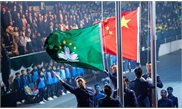
- Macao's devt lesson for Hong Kong
- Mainland, Hong Kong and Macao ink cooperation arrangement on aviation security
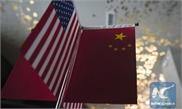 If more Hongkongers can reflect on the region's
development from Macao's experience, it will be beneficial to the future
of Hong Kong.
If more Hongkongers can reflect on the region's
development from Macao's experience, it will be beneficial to the future
of Hong Kong.US creates another unjust case against China
China is not a small country. If the US provokes China too much, China will inevitably launch countermeasures.
Trump Impeachment exposes democracy's true nature In the past months, Chinese people have increasingly seen
the nature of Western democracy. It's time for the world to get a better
understanding of it.
 Capitalism is losing appeal to Chinese
Capitalism is losing appeal to Chinese
In terms of reform capacity, the Western capitalist countries, such as the US, are far from role models to the world. Economic growth needs deep vitality
Chinese society should neither secure the growth of 6 percent through strong stimulus nor accept the inertia of a growth rate below 6 percent. We should take active and rational actions.Related posts:
Hong Kong in decline
 |
Losing ground: China’s spectacular rise has
affected Hong Kong’s thriving financial services industry, along with
development of port services. - Reuters
|
Hong Kong youth deceived by West: ‘I go to Yale, you go to jail’ mocks agitator followers
https://youtu.be/NzIJ25ob1aA
China sanctions US over Hong Kong
-
A documentary released by China's national broadcaster CGTN on the anti-terrorism work in Northwest China's Xinjiang Uyghur Auto...
-
Truths about Xinjiang the Western media won't tell https://youtu.be/smxScIJ-CP4 CGTN recently released two documentaries about...
-
China exposes the truth about Xinjiang, but the West ignores. Why? US hypocrisy on human rights & Trade Warhttps://youtu.be/bRy1AKUzb2o China airs Xinjiang truths Fresh and shocking footage recorded in Xinjiang over the past two decades ha...



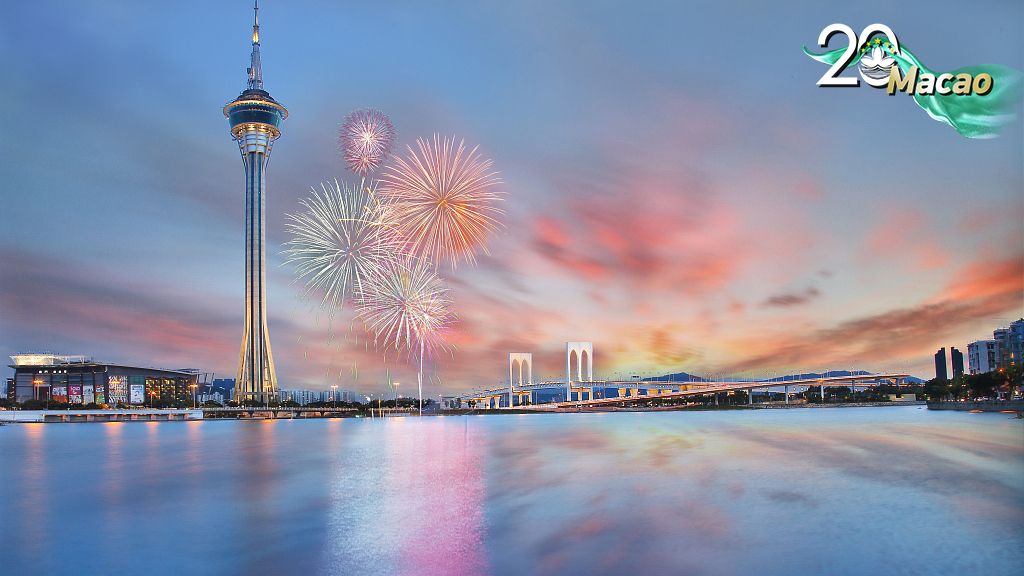



No comments:
Post a Comment